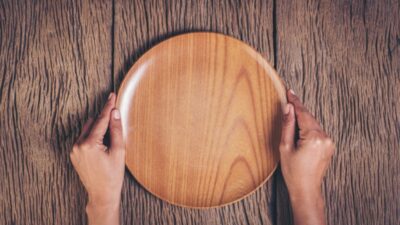Ramadan is a sacred month observed by millions worldwide, involving fasting from dawn to sunset. While fasting offers spiritual benefits, it can also be an excellent opportunity for weight loss if done correctly. Following a well-balanced Ramadan diet plan for weight loss can help you shed excess fat while maintaining your energy levels throughout the month.
Ramadan Diet Plan for Weight Loss
A successful Ramadan diet plan for weight loss focuses on consuming nutritious foods during suhoor and iftar, staying hydrated, and avoiding unhealthy habits. Below is a guide to structuring your meals and optimizing your diet for better health and weight loss results.
Best Foods for Suhoor
Suhoor, the pre-dawn meal, should provide sustained energy to help you feel full throughout the day. Choose nutrient-dense foods such as:
- Complex Carbohydrates: Whole grains, oats, brown rice, and whole wheat bread release energy slowly.
- Protein-Rich Foods: Eggs, yogurt, cottage cheese, and lean meats help in muscle repair and satiety.
- Healthy Fats: Nuts, seeds, and avocado provide essential nutrients and sustained energy.
- Hydrating Fruits and Vegetables: Cucumbers, watermelon, oranges, and spinach keep you hydrated.
Iftar Meal Guidelines
Breaking your fast with nutritious foods can prevent overeating and help with weight loss. Follow these iftar meal guidelines:
- Start with Dates and Water: Dates provide instant energy and are a traditional way to break the fast.
- Include Lean Proteins: Grilled chicken, fish, lentils, or tofu support muscle maintenance.
- Opt for Healthy Carbohydrates: Brown rice, quinoa, and whole wheat pasta are better choices than refined carbs.
- Avoid Fried and Processed Foods: These add unnecessary calories and slow down metabolism.
- Incorporate Vegetables: Fresh salads and steamed or roasted vegetables add fiber and essential nutrients.
Hydration Tips
Dehydration can lead to fatigue and cravings. Follow these hydration tips:
- Drink at least 8-10 glasses of water between iftar and suhoor.
- Avoid caffeinated beverages as they increase dehydration.
- Consume herbal teas and coconut water for hydration and digestion support.
Effective Weight Loss Strategies During Ramadan
1. Control Portion Sizes
Overeating at iftar can lead to weight gain. Use smaller plates and practice mindful eating.
2. Incorporate Light Exercise
Engage in light workouts like walking, yoga, or stretching after iftar to stay active.
3. Avoid Sugary and Processed Foods
High-sugar desserts and fried foods lead to fat accumulation and energy crashes.
4. Prioritize Sleep and Rest
A well-rested body supports metabolism and weight management.
Sample Ramadan Diet Plan for Weight Loss
Suhoor:
- 1 boiled egg or Greek yogurt with nuts
- 1 whole wheat toast or oatmeal with chia seeds
- 1 banana or handful of berries
- 2 glasses of water
Iftar:
- 3 dates and 1 glass of water
- Grilled chicken or fish with quinoa and salad
- Lentil soup or vegetable stir-fry
Post-Iftar Snack (if needed):
- Handful of nuts or a fruit smoothie with almond milk
Final Thoughts
Following a well-structured Ramadan diet plan for weight loss can help you stay fit while fasting. Prioritize nutrient-dense foods, control portions, stay hydrated, and avoid unhealthy eating habits. By making mindful choices, you can achieve your weight loss goals while maintaining your energy throughout the holy month.
For additional dietary guidance, visit Mayo Clinic’s Healthy Eating Guide.




